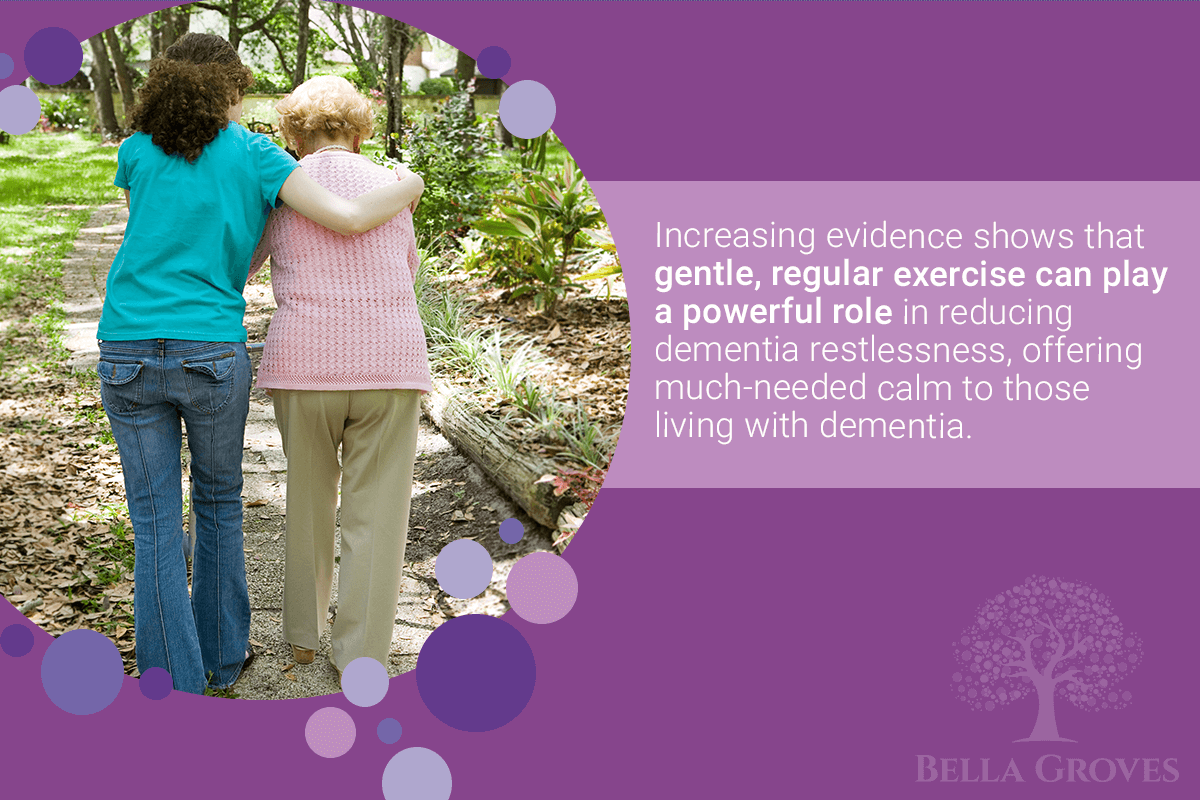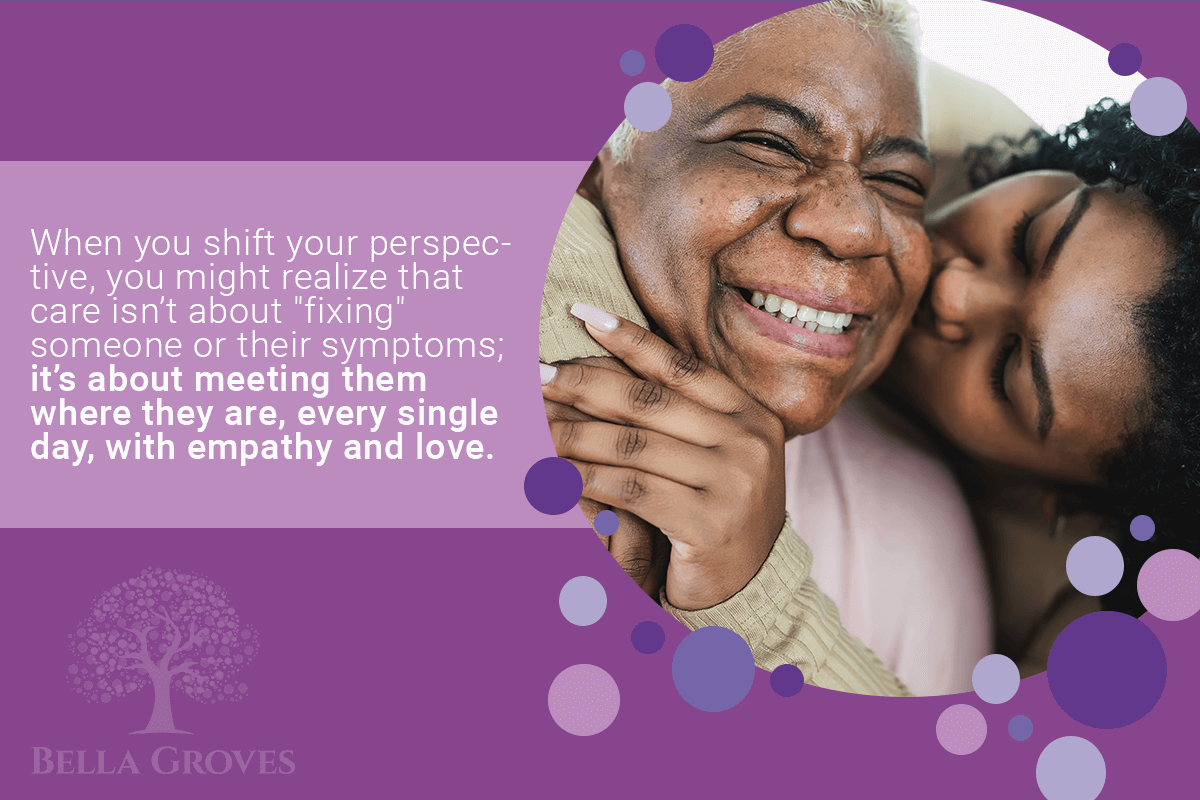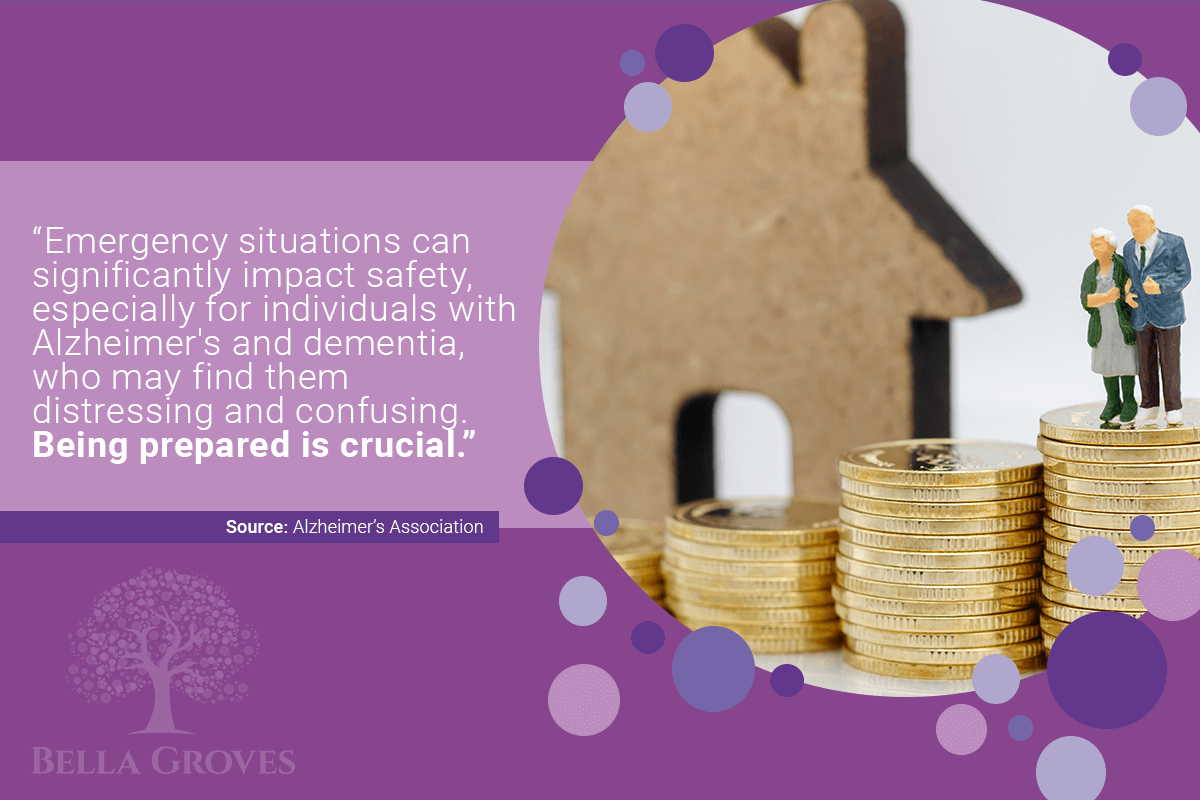
Dementia Restlessness: How Exercise Can Help
Caring for a person with dementia is a deeply personal and emotional experience. One of the most common and challenging symptoms care partners face is restlessness. Whether it presents as pacing, fidgeting, or repetitive movements, dementia restlessness can feel overwhelming for both care partners and the person living with dementia. However, there’s good news. Increasing evidence shows that gentle, regular exercise can play a powerful role in reducing these expressions, offering much-needed calm to those living with dementia.
At Bella Groves, we believe in holistic, thoughtful approaches to dementia education and care. Based in Bulverde, Texas, and serving the San Antonio area, we help families create meaningful moments of joy in their caregiving journeys. We’re exploring the connection between exercise and dementia restlessness, offering practical tips to bring calm and connection to you and your family member.
The Science Behind Exercise and Dementia Restlessness
Why does exercise help soothe restlessness in people living with dementia? The answer lies in the biology of the brain. Research shows that physical activity stimulates the release of endorphins, those “feel-good” chemicals that reduce stress and promote relaxation. Exercise can also regulate circadian rhythms, improving sleep quality and reducing nighttime restlessness.
For individuals with dementia, physical activity isn’t just about keeping the body healthy. It engages the mind, provides sensory stimulation, and helps foster a sense of routine. Even short bursts of activity can have an immediate calming effect.
Key Benefits of Exercise for Dementia Restlessness:
- Reduces stress and agitation by releasing endorphins.
- Improves sleep patterns, reducing nighttime wandering.
- Encourages social interaction during group activities like walking or chair yoga.
- Offers a sense of purpose and control through structured activities.
Types of Exercise Beneficial for Those Living with Dementia
When designing an exercise routine, it’s essential to prioritize safety, simplicity, and enjoyment. Not every activity will be suitable for every individual, so consider your family member’s physical abilities, interests, and stage of dementia. It’s also a good idea to consult their healthcare provider before introducing any new exercises into their routine. Here are a few ideas to get you started:
Gentle Stretching
Stretching exercises are fantastic for reducing muscle tension and improving flexibility. Simple movements like reaching for the ceiling, gentle neck rolls, or seated stretches can provide a calming sensory experience.
Walking
A walk around the block or in the garden is not only great for circulation, but also provides an opportunity to connect with nature. Walking together can reduce feelings of isolation and create shared moments of quiet.
Chair Yoga or Tai Chi
These low-impact exercises are excellent for balance, coordination, and relaxation. Chair yoga can be particularly good for individuals with limited mobility, offering them a way to move without strain.
Dance or Music-Based Movement
Who doesn’t love a good tune? Put on your loved one’s favorite music and gently encourage light dancing or rhythmic movements. Music helps trigger positive memories and can lift their mood almost instantly.
Household Chores
Folding laundry, watering plants, or even wiping down a table can be used as simple ways to encourage movement. These tasks promote exercise while instilling a sense of purpose and autonomy.
Ball Toss or Light Games
A soft ball or bean bag can be used for fun, low-pressure games that encourage hand-eye coordination and engagement.
Resources and Support for Care Partners
No one should feel like they have to navigate the dementia journey alone. Whether you’re looking for guidance on dementia restlessness or expert advice on managing your loved one’s care, there are resources that can help:
- Bella Groves Dementia Education: We offer personalized training and resources to help care partners manage the everyday challenges of dementia.
- Support Groups: Joining a care partner support group can provide emotional encouragement and helpful tips from others in similar situations.
- Professional Assistance: If you’re feeling overwhelmed, consider reaching out to a dementia care specialist. Sometimes, a fresh perspective can make all the difference.
At Bella Groves, we’re not just here to take care of people. We believe caregiving is about creating a community of unconditional love and joy.
The Transformative Power of Exercise
Exercise won’t cure dementia, but it can transform how someone you care about experiences it. By reducing restlessness and improving mood, physical activity is a simple yet incredibly effective way to bring a little calm to an otherwise challenging day.
At Bella Groves, we’re ready to be part of your family’s story. If you’re looking for individualized guidance or dementia education resources, don’t hesitate to reach out. Together, we can reimagine what dementia care can look like for you, your loved one, and the community around you.
Contact Bella Groves to take your next step in creating a joyful, supportive environment for your family member.


